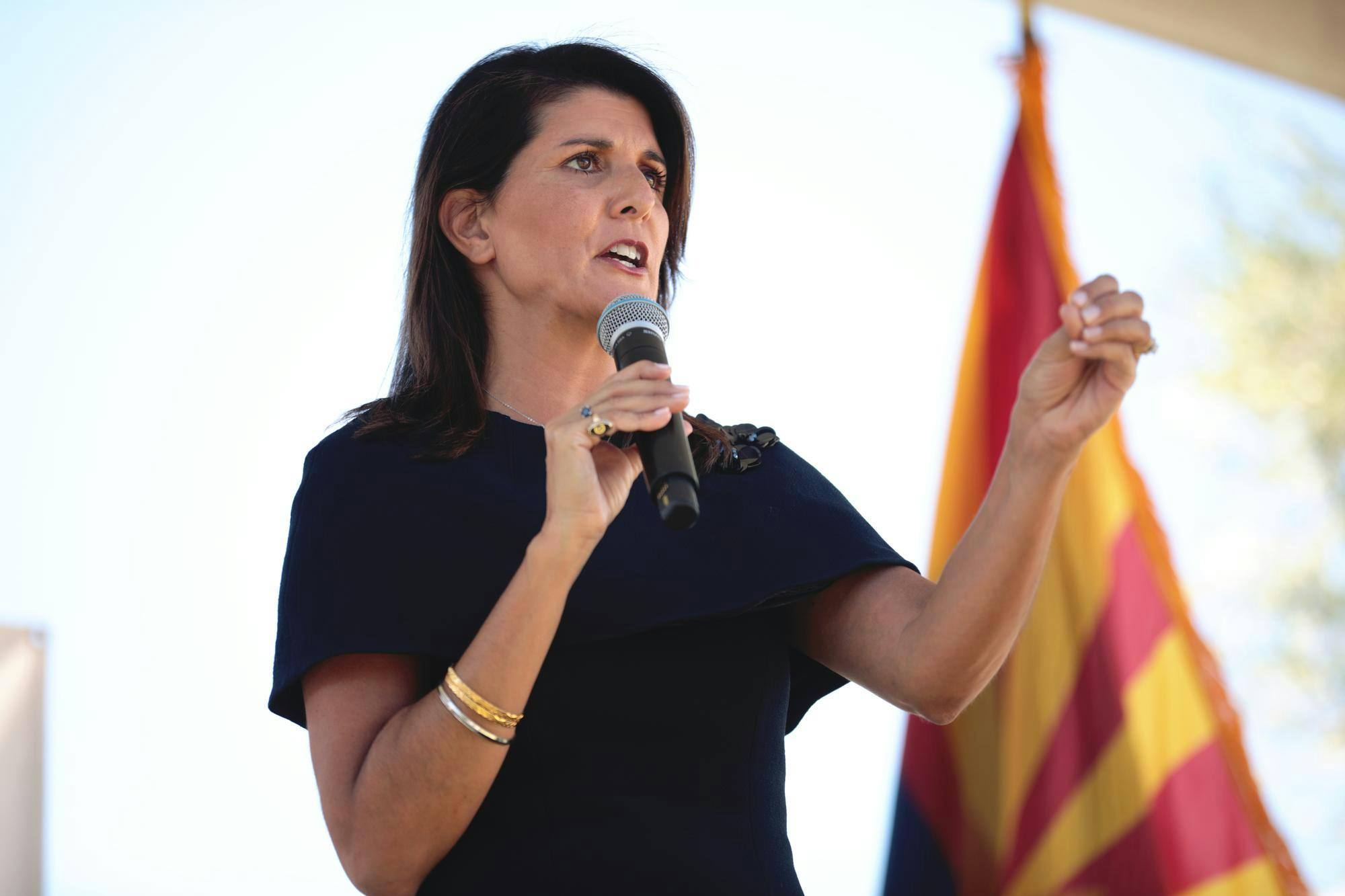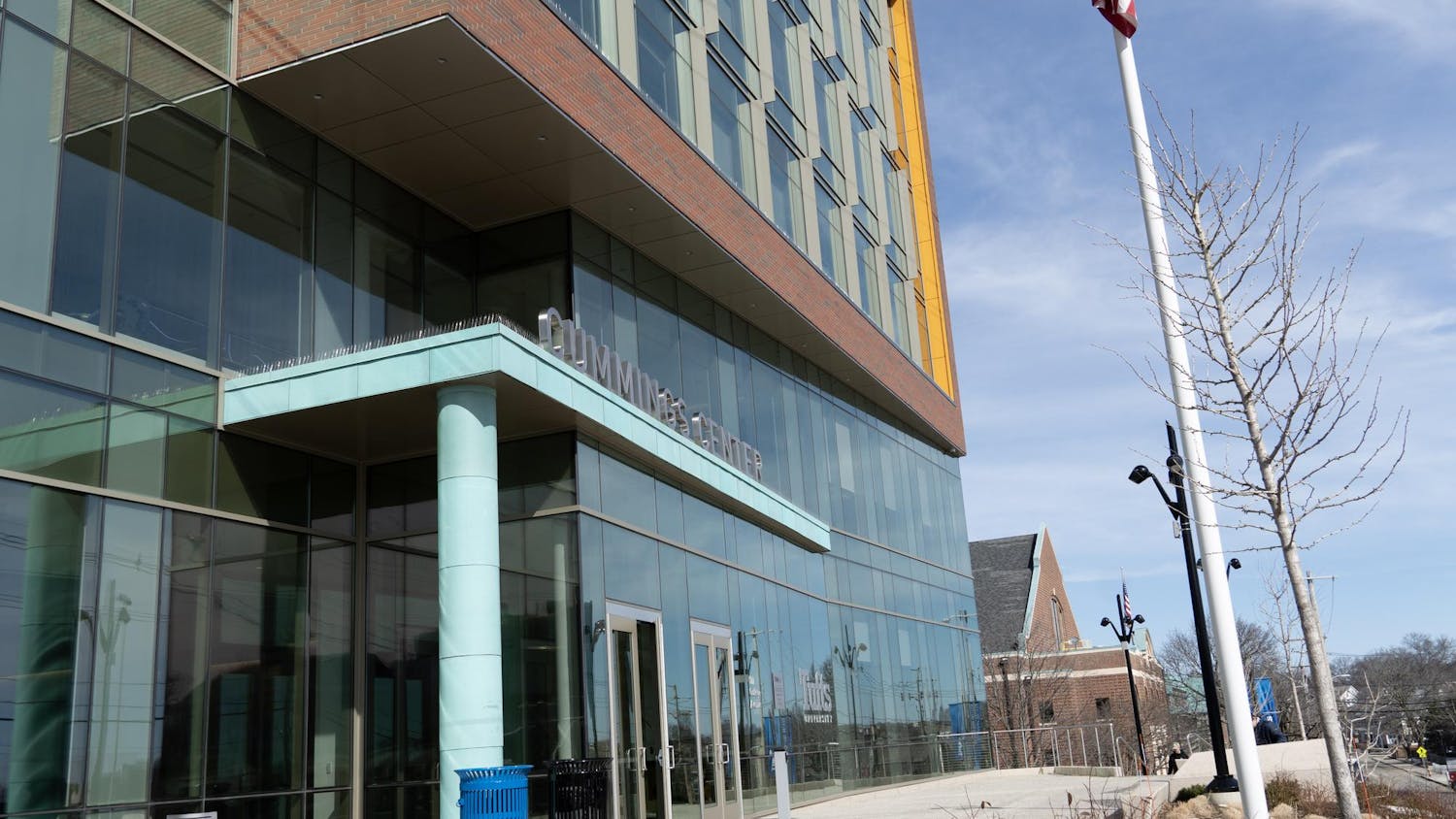Jennifer Nassour, the Massachusetts state chair for former U.N. Ambassador Nikki Haley’s presidential campaign and former chair of the Massachusetts GOP, shared her reasons for supporting Haley and answered questions from students during an event organized by Tufts Republicans on Feb. 21.
Although the Republican primary field initially consisted of more than a dozen candidates, Haley is the last woman standing in what many observers have dubbed a coronation ceremony for former President Donald Trump. Despite facing a clear deficit in all five Republican nominating contests held thus far, Haley has vowed to stay in the race.
Last week’s discussion came just days before voters would cast their primary ballots in Haley’s home state of South Carolina on Saturday. When asked by one student what the campaign would consider a strong performance in the state, Nassour shared what percentage of votes the campaign is aiming for.
“I would like to see 40%. I think 40[%] would be great, I think if she gets anything over 35[%], she’s fine,” Nassour said.
After the event, Trump beat Haley with 59.8% of the vote, as opposed to Haley’s 39.5%.
When asked by one student about Haley’s path to victory, Nassour emphasized that winning delegates is more important than winning states.
“The media is really hung up on the whole ‘winning states’ issue. Winning a state is not the issue. Winning the delegates is the issue, and the magic number is 1,215,” Nassour said. “As far as Nikki and the campaign are concerned, nothing changes until someone gets to that 1,200 number.”
Although she acknowledged that it will not be easy to reach that “magic number,” Nassour believes that it is important for voters to have an alternative choice on election day.
“I think that the Republican Party has missed a standard bearer, and Trump has had, from the beginning, 34% of the Republican Party. … Well, where’s the rest? Last time I checked, 34%, you don’t need to be a math major, is not a majority,” Nassour said.
Echoing familiar Haley campaign rhetoric, Nassour positioned Haley as the sensible alternative for voters who are both disillusioned with Trump’s Republican party and have worries about President Joe Biden’s age.
“One of the things about Haley that you don’t see in Biden or Trump is that, at 52 years old, she has a full runway ahead of her. She has another 40 to 50 years to look forward to,” Nassour said. “The only thing that Trump and Biden have is looking in the rearview mirror.”
One student asked whether Nassour believed Haley should endorse Trump if he is the eventual GOP nominee.
“I actually don’t think that she should. I think there are a lot of people that would be very upset, and I think she loses a tremendous amount of credibility,” Nassour responded.
Nassour, who has been working on political campaigns since age 19, spoke to Haley’s electability over figures like Trump. When asked about Haley’s perceived “branding problem” in trying to appeal to both moderate and conservative voters, Nassour commented on partisan issues.
“I don’t think she has a branding problem at all. I think the Republican Party has an issue because there are two parties in this country, Republican and Democrat. There’s no MAGA party,” Nassour said.
Nassour also spoke to Haley’s place within the Republican Party.
“The Republican Party looked and sounded like Nikki Haley until Trump came around,” Nassour added.
Ultimately, Nassour stressed the importance of casting a ballot in the upcoming presidential primaries, which will be held on March 5 in Massachusetts.
“One of the things I’m going to ask you all is please make sure, whether it’s this election on [March 5] or [your home state’s] elections … please make sure you vote in primaries, because 22% of our electorate actually picks who goes forward into the general election,” she said.






